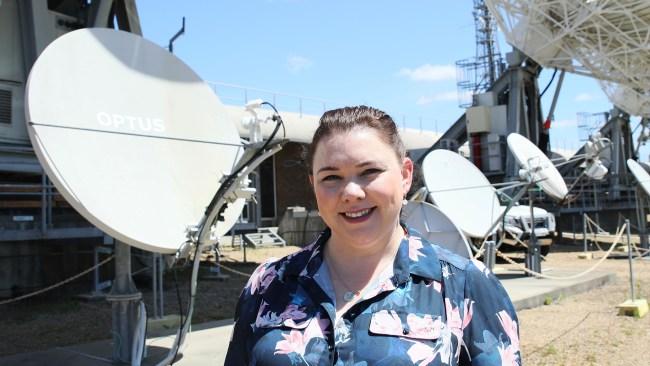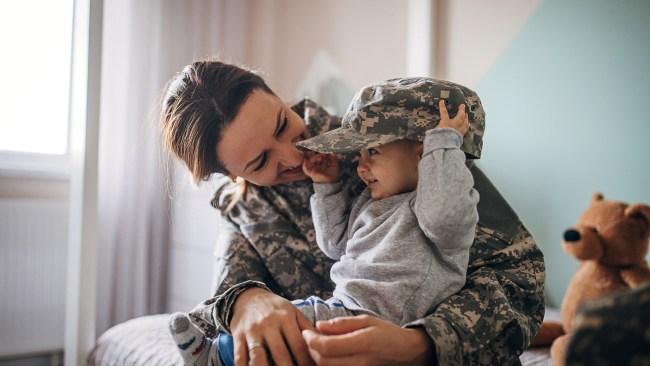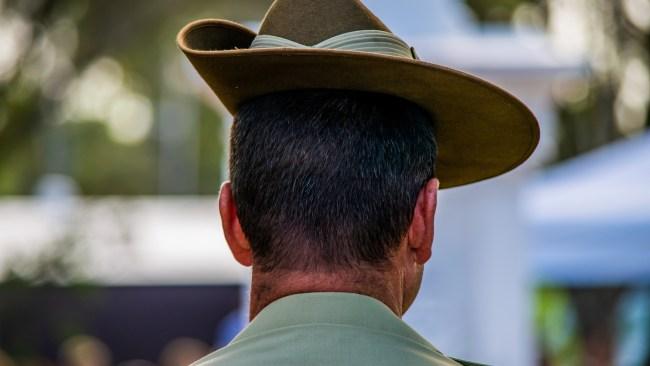How Optus is strengthening its workforce with ex-service people
Moving from a career in Defence to a civilian role is being made easier thanks to a program designed to help ex-service people get jobs.

Moving from a career in Defence to a civilian role is being made easier thanks to a program designed to help ex-service people get jobs. This article is sponsored by the Department of Veterans’ Affairs
Veteran Emma Perkins spent 12 years in the Royal Australian Navy before making the move to the private sector.
She is one of the many ex-service people who attest to the importance of the Australian Government’s Veteran Employment Program. The Program delivers initiatives that support Australian organisations to improve employment outcomes for ex-service people.
The Veterans Employment Commitment (VEC), an initiative of the Veteran Employment Program, supports organisations across Australia to create inclusive workplaces for ex-service people.
Ms Perkins had a variety of experience across different roles within the military, but was unsure how that would translate to the private sector.
Her last role in Defence was as a satellite narrowband operator, and it was there she heard about a job opportunity at Optus.
“I was really nervous, because I didn’t have formal qualifications,” she said. Despite her hesitation, she applied for the role and was invited in for a panel interview for a satellite engineer position.
Optus is a member of the VEC and employs a number of ex-service people, recognising their considerable transferable skills.
“During the interview, they assured me they’d worked with veterans and understood the transition, and that they could ease me through it, and that much of the training would be on the job,” Ms Perkins said.
She got the job, and has since progressed in her career, and is now satellite defence security manager at Optus and chair of the United network, an Optus internal network supporting current and ex-service people, emergency services volunteers and their families.

WHY EX-SERVICE PEOPLE MAKE GREAT EMPLOYEES
While the network is part of the company’s effort to build an inclusive workforce, the benefits flow both ways.
Optus people and culture vice president Kate Aitken said hiring ex-service people isn’t about ticking boxes – their skills are critical for the success of the business.
“We have a lot of engineering and network technical roles which are a good match,” she said.
“But also opportunities for leaders with great strategic minds, (and) roles in supply chain, procurement and all sorts of areas. The Australian Defence Force (ADF) is such a broad employer – so we’re proactive about tapping into that talent.”
Ms Aitken said she has been impressed by the skills ex-service people have brought to the company.
“Veterans bring a range of amazing skills; leadership, teamwork, agility, the ability to work under pressure and deep technical skills,” she said.
“In our network and satellite teams, we see very specific skills that you can only get from the ADF. But veterans also bring softer skills, such as being first responders in our workplaces, providing first aid and handling emergency situations. Their response skills are a great asset to our workforce.”
THE VETERAN EMPLOYMENT PROGRAM
A key initiative of the Veteran Employment Program is the Veteran Employment Commitment (VEC).
The Department of Veterans’ Affairs renewed the VEC in April 2024, introducing a multi-level model to help employers of all sizes in recruiting and retaining ex-service people.

This means Australian organisations are petter positioned to hire ex-service people into careers outside the military.
The approach provides practical support and resources to encourage organisations to provide greater employment opportunities and assistance for ex-service people.
This helps ex-service people move from the ADF to civilian life, empowering employers to publicly demonstrate the importance their business places on the skills, values and experience that ex-service people bring to civilian workplaces.
Ms Aitken said since Optus joined the renewed VEC, it has been recognised as a Veteran Employer of Choice. She explained the company has a range of veteran employment recruitment, retention and leadership initiatives including interview practices for hiring ex-service people, supportive policies and benefits, an employee network and a range of connection and commemoration activities.
She said the commitment extends beyond recruitment, with Optus supporting veterans in other ways, such as their partnership with the not-for-profit veteran support organisation Soldier On, and regularly raising funds and awareness for Legacy.
Optus has also recently signed a multi-year partnership with Invictus Australia and ensures ex-service people are included in broader corporate initiatives.
“We hold regular commemoration events, such as Anzac Day and Remembrance Day,” Ms Aitken said.
“We also have a military leave policy and conduct a diversity and inclusion census where we ask our people if and how they identify themselves, and in our last survey three per cent of our workforce told us they’ve been in the Defence Force or are the spouse or dependant of those who have.”
HELPING OTHERS MAKE THE MOVE
For Ms Perkins, the benefits of having a network of ex-service people as colleagues has gone beyond having someone she could reminisce with – it has helped her build a strong network within Optus.
“If I had questions about the organisation’s structure or corporate knowledge, I had veteran team members I could ask,” she said. “With their support, it was a very easy transition.”

She said she is passionate about supporting ex-service people to find their next career, no matter the types of roles they are interested in.
“I always tell them to go to the VEC page on the Veteran Employment Program website and find the organisations that have joined,” she said.
“You’ll find someone who understands you and your pathway to transition. They’ll provide a supportive and inclusive workplace.”
The Veterans Employment Commitment is helping organisations all over Australia to recruit ex-service people. Find out more here.


